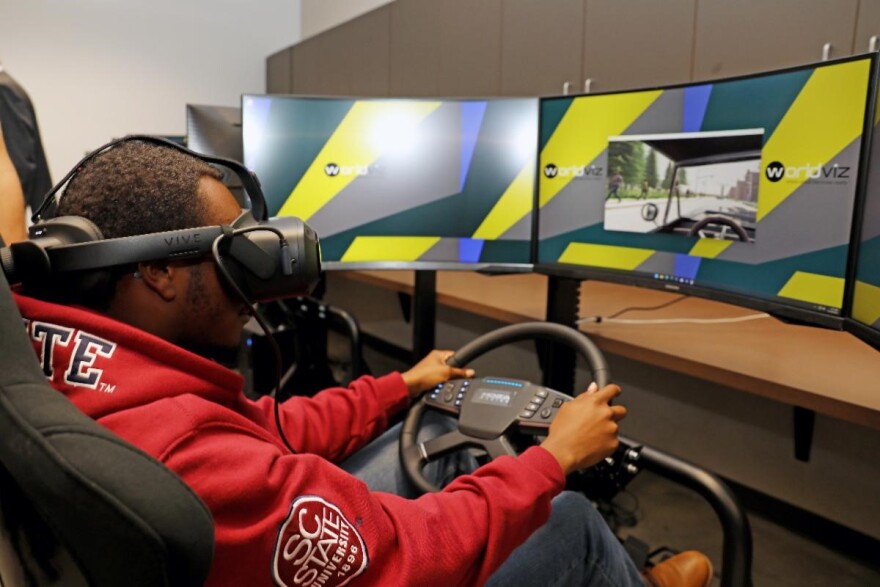A $1.98 million dollar grant from the U.S. Department of Transportation is driving commercial motor vehicle training at South Carolina State University (SCSU) via virtual reality.
University leaders and staff cut the ribbon on the school's SMART (Strengthening Mobility and Revolutionizing Transportation) Virtual Reality Lab Wednesday. SCSU's Business, Environment, Communications, and Transportation (BECT) received the grant from the Federal Motor Carrier Safety Administration to develop a state-of-the-art research and training facility dedicated to advancing safety, efficiency and readiness in the transportation industry.
“We intend for this to be a statewide resource. We intend to invite drivers into our lab, provide them training, provide them certificates so that they can take that training and go out and help educate their coworkers until we can get every driver possible through this training,” said SC State President Alexander Conyers.
The SMART Lab leverages virtual reality technology to provide realistic hands-on training including navigating complex traffic patterns, responding to hazardous conditions and responding to both internal and external distractions. It's equipped with three full-scale driver cockpit simulators, along with 15 student workstations to analyze data for research.
“We will also have a portable unit that we will go out into the community, to the schools, to introduce our youth to transportation careers, as well as those here on campus. We will also, in addition to our training, have workshops for educators or transportation professionals, as well as researchers, to engage in research related to transportation and safety issues as it relates to commercial vehicle drivers,” said BECT Executive Director Dr. Barbara Adams.
Each simulator will include 10 or more scenarios and will be equipped with sensors that will capture physiological data, such as heart rate, to indicate how drivers respond and make decisions when faced with fatigue, distractions, aggressive drivers, speed and other situations that can cause roadway accidents.
Representatives from the South Carolina Department of Transportation, State Transport Police, Department of Public Safety, and the South Carolina Trucking Association attended the ribbon cutting.
Taryn Shekitka, director of operations for the Trucking Association the opening of the SMART Lab is a significant investment in better training and smarter technology.
“This program gives drivers something we've never been able to give them in this state at this scale — a safe place to experience high-risk scenarios without putting anyone in danger,” she said. “South Carolina depends on trucking. Our economy depends on trucking. Today, with this program, we're clearly saying you are serious about safety.”


